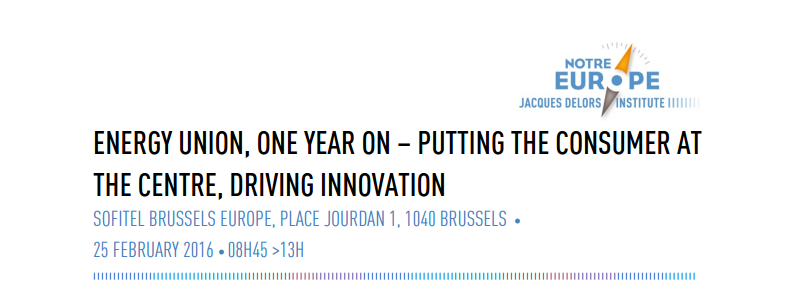Brexit & Tax


INVITATION
“Accounting for Public Goods: the Social and Natural Capital Imperatives”
8th February 2017
4.30-6.45pm, followed by cocktail reception, Polak Room, Residence Palace, Brussels
All businesses, either directly or indirectly, depend upon natural capital, derived from natural resources. It provides the many inputs and services that underpin human societies and economies. At the same time, current economic activities are eroding natural capital: the use of fossil fuels is driving climate change; the growing demand for certain products such as palm oil is a key driver of deforestation and biodiversity loss. In addition, population growth and the need to feed growing numbers of people put intense pressure on both terrestrial and marine ecosystems. These are trends that are likely to worsen in the future if a state of business-as-usual continues.
Addressing the challenge, the UN explained why business managers should consider the effects of their decisions not only on finance, but also on social systems and natural capital. And a number of businesses stated publicly their aim to have a ‘net positive’ impact on various elements of natural capital. However, if the concept of net positive impact is simple at a high level – to do more good than harm – it is highly complex to apply in practice, and to measure.(for more see ACCA’s Global Forum for Sustainability report. )
The growing interest in the concept of natural capital is already driving a wide range of initiatives aimed at developing tools and frameworks accounting for and reporting on natural capital, as illustrated in ACCA recent paper. But we need to do more.
It is time to have a bold discussion to concretely address challenges and define the next steps to further embed natural capital and social considerations in business decision making. The Social and Natural Capital imperatives are being seen increasingly as potentially material issues that businesses of all types and investors should manage, and as such be quantified and appear in financial reports.This edition of ACCA President’s debate will aim to foster effective engagement among policymakers, investors, landowners, landmanagers, businesses, natural capital specialists and accountancy professionals.
Please reply by 27 January to Cécile Bonino, ACCA’s Head of EU Affairs, cecile.bonino@accaglobal.com
Draft Agenda
16.30h Registrations and coffee
16.45h Welcome speech Brian Mc Enery, ACCA President
16.55h Key note speech Phil Hogan, EU Commissioner Agriculture and Rural Development
17.10h Panel discussion moderated by Maggie Mc Ghee, Director, Professional Insights, ACCA
· Corrado Pirzio-Biroli, CEO of the RISE Foundation
· Monica Scatasta Head of Environment, Climate and Social Policy, European Investment Bank
· Humberto Delgado Rosa, Director, Natural Capital, DG ENVI
· Michel Bande, Senior Executive Vice-President, Solvay
18.15h Questions and answers
18.35h Conclusions Brian McEnery, ACCA President
18.45h Cocktail reception
The Great Recession and the European debt crisis have reignited the debate about deeper fiscal integration in the Eurozone. Supporters of further integration argue that fiscal risk sharing is necessary to increase the resilience of the European economy against macroeconomic shocks.
Join us to discuss financial literacy as a key transversal, supporting long-term outcomes like entrepreneurship and employability!
Europe's commitment to a single capital market dates back nearly 60 years.

“Education and training 2020 - giving today's young people the workplace skills they will need”

Building namely on a policy proposal made by the Jacques Delors Institute, the European Commission tabled its ‘Energy Union Strategy’ on February 25th 2015.

The American Chamber of Commerce to the European Union (AmCham EU)
is pleased to invite you to the launch of a new study
“SMEs’ access to Finance: A new “Financing Mix” to be set up within the EU
The Case for Investing in Europe
on Wednesday 24 June 2015 from 14:00 to 18:30